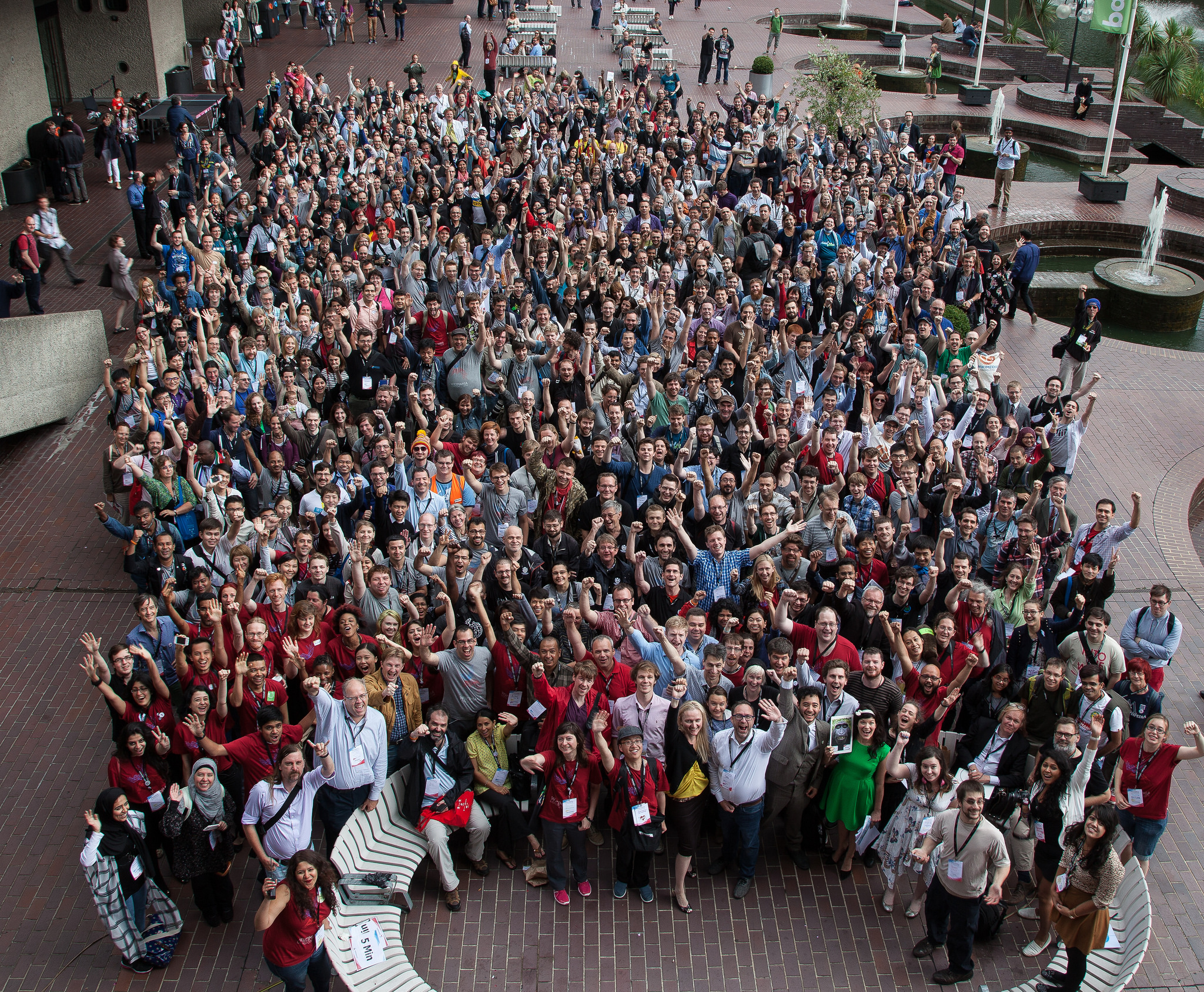
Image by Olaf Janssen via Creative Commons
By Steven McGinty
Too often, debates on smart cities revolve around terms such as “Internet of things”, “big data”, and “sensors”. However, there is a growing realisation that truly smart cities take a more person-centric approach, which focuses on the needs of citizens and harnesses their skills, talents and experience.
Crowdsourcing is one approach that can help cities do just that. From Danish toy maker Lego to tech giant Amazon, organisations are using digital tools to gather views, opinions, data, and even money from citizens. Public sector institutions have also got involved, introducing projects that engage with citizens, as well as tap into external skills through events such as hackathons (where civic hackers come together to solve key city problems).
Already, there is a wide range of crowdsourcing initiatives across the world. Below I’ve highlighted some of the best.
Scottish Government
In 2015, the Scottish Government’s Open Data and Fisheries teams introduced Dialogue, a citizen engagement tool developed by Delib (a social enterprise based in the UK and Australia).
The Open Data team were in the process of creating an open data plan for public bodies. They felt that crowdsourcing could help them gain a greater understanding of the types and formats of datasets people would be interested in, and as such, posed a series of questions to citizens.
The Fisheries Team took to crowdsourcing to gather the views on a proposal to create a ‘kill licence’ and carcass tagging regime for salmon. As they knew this would be controversial, they wanted to gain a better understanding of the concerns in fishing communities, and to see if there were any better approaches.
Both teams learned a lot of useful lessons from the process. These included:
- ensuring questions were as specific as possible so citizens could understand;
- marketing projects to specific communities with an interest in the question raised;
- avoiding making assumptions or stereotyping audiences; and
- giving short deadlines (as this added urgency and encouraged greater participation).
Milton Keynes
MK: Smart – Milton Keynes’ wide ranging smart cities programme – has introduced an online platform known as Our MK to connect with citizens. This award-winning project supports people in playing a central role in urban innovation, from crowdsourcing initial ideas through to finding mentoring support and funding through their dedicated SpaceHive page.
The platform’s citizen ideas competition offers up to £5,000 worth of funding to turn ideas into reality. So far it’s generated over 100 ideas, with 13 projects being allocated funding. This includes the Go Breastfeeding MK App (an app which promotes the use of breastfeeding within Milton Keynes) and the gamification of Redways (which saw an app developed to encourage people to explore the Redways network – a series of shared use paths for cyclists and pedestrians.)
Madrid City Council
In 2016, Madrid City Council launched Decide Madrid. The platform played a key role in supporting the city’s participatory budgeting process, allowing citizens to propose, debate, and rank ideas submitted to the website. Once citizens had chosen their top proposals, city employees checked the ideas against viability criteria and a cost report was carried out. If the proposal failed to meet the criteria, a report was published explaining why it had been excluded.
Decide Madrid provided guidance of what was allowed and what was not (offline meetings were also used to explain the limitations of the scheme), to ensure that only valid proposals were checked. This ensured the initiative didn’t become too labour intensive.
In the 2016 Budget, €60 million was set aside. By the time the process had finished, citizens had debated over 5,000 initial ideas, with 225 projects being chosen for funding.
Reykjavik City Council
Better Reykjavik was introduced to provide a direct link for citizens to Reykjavik City Council. The online platform enables citizens to voice, debate and prioritise the issues that they believe will improve their city. For example, Icelandic school children have suggested the need for more field trips.
In 2010, the platform played an important role in Reykjavik’s city council elections, providing a space for all political parties to crowdsource ideas for their campaign. After the election, Jón Gnarr, former Mayor of Reykjavik, encouraged citizens to use the platform during coalition talks. Within a four week period (before and after the election), 40% of Reykjavik’s voters had used the platform and almost 2000 priorities had been created.
Overall, almost 60% of citizens have used the platform, and the city has spent approximately £1.7 million on developing projects sourced from citizens.
Final thoughts
Crowdsourcing is more than just creating a flashy website or app. It’s a process which requires strategic planning and investment. If you’re planning your own initiative, seeking out good practice and learning from the experience of others is a great place to start.
This article was based on the briefing ‘The crowdsourced city: engaging citizens in smart cities’. Idox Information Service members can access this briefing via our customer website.
Share
Related Posts
Supporting residents on the decarbonisation journey: leveraging data for effective retrofit projects
As the drive towards decarbonisation intensifies, the social housing sector’s ability to collect, store and manage vast amounts of data becomes increasingly critical. With a shared goal of creating warmer, carbon-free homes, housing associations’ strategic use of data is essential ....
Tackling geographical inequalities is critical for ensuring that all parts of the country have the potential to prosper. When the UK was a member of the European Union, it was entitled to a share of funding from the EU’s structural ....
In recent years, there has been an increasing focus on ensuring people with ‘lived experience’ are involved in co-producing research and policy-making at practical, local level. However, there has been little discussion around what the people with lived experience themselves ....

